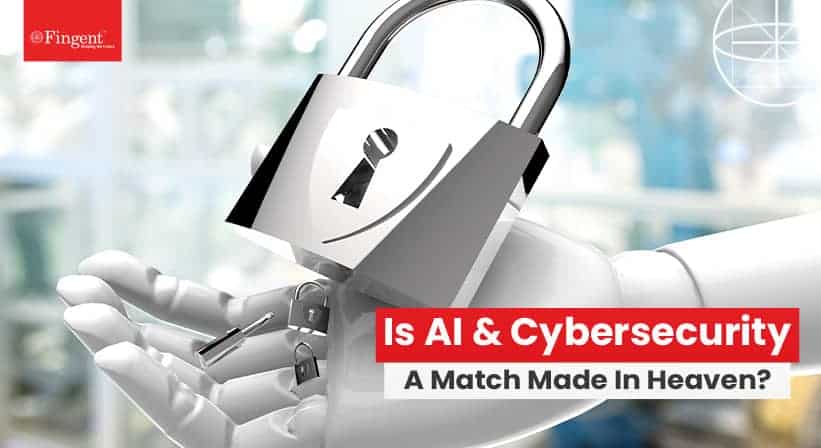The Application and Impact of Information Technology in Healthcare
What is healthcare information technology and what are its benefits?
From transportation to manufacturing to education, information technology is influencing virtually every industry today. The healthcare industry has experienced a significant transformation brought in by information technology. From electronically checking in patients and updating their medical records to digitally forwarding blood test results to patients, information technology is transforming the healthcare industry by leaps and bounds. Experts estimate that by the end of 2024, the healthcare information technology market could reach USD 390.7 bn.
This post looks at how information technology and healthcare go hand-in-hand to benefit both medical professionals as well as patients.
Read more: 7 Major Impacts of Technology in Healthcare
What is Healthcare Information Technology (HIT)?
While information technology refers to the usage of computers and telecommunications and other systems to store, retrieve and share information, HIT, refers to the secure use of technology to manage health-related information.
The most common examples of healthcare information technology are e-prescriptions, electronic health records (EHRs), and other tech tools that help patients meet health goals such as managing blood sugar levels or quitting smoking. Information technology has paved the way for more accurate EHRs/ EMRs that help patients gain quick and easy access to various healthcare facilities. Additionally, it has given patients more control over their health through various mobile apps and information platforms.
Healthcare information technology’s primary purpose is to maintain privacy while improving patient care. HIT enables medical professionals to not only take better care of patients but also improve their communication with patients.
A few examples of Health IT are:
- Computerized disease registries
- Consumer health IT applications
- Electronic prescribing
- Electronic medical record systems such as EMRs, EHRs, and PHRs
- Telehealth
What is the significance of healthcare information technology?
The goal of using information technology in healthcare is to enhance the overall health of the people by improving the quality of care provided to the patients.
Healthcare information technology is significant because it:
- Helps in delivering more accurate, actionable, and accessible information related to a patient’s health that can be customized to meet the individual’s needs.
- Allows better and faster decisions related to health risks that affect an individual as well as the public.
- Supports communication between patients and healthcare professionals and helps in decision-making.
- Helps build networks of social support for both patients as well as healthcare professionals.
- Improves awareness among patients as well as the general public about health-related matters that can lead to positive outcomes.
Uses of information technology in healthcare
Information technology is being used in numerous ways to improve patient safety, healthcare delivery, and communication between healthcare providers and patients. One of the most remarkable applications of HIT is patient records and data management.
Previously, paper charts were used to maintain patients’ records that were easily lost, misinterpreted, or damaged. IT has helped healthcare professionals track patient’s records easily and securely. A medical professional can add pharmacy records, X-rays, test results, and even vital signs to the virtual chart that is easy to read, share, and check against other records.
Also, an entirely new discipline known as nursing informatics has been formed by combining IT and clinical care. This discipline combines the practice of nursing with IT management and helping people with a passion for science and data in the service of medical patients and improving healthcare. With increased demand in technology, this field is gaining more popularity day by day.
According to a survey by the Robert Wood Johnson Foundation, it was found that nurses who use IT are more likely to spot medical errors. As less time is spent on documenting patient care, nurses can get more time to spend on patient care. Also, as more and more people are getting insured and seeking quality care, the demand for information technology that can help track patients’ records accurately and improve healthcare is only going to grow.
As the HIT field expands, it will create more jobs for IT professionals in hospital settings. From medical transcriptionists, medical coding specialists, clinical IT consultants, and healthcare system analysts, roles in the field of healthcare are growing every year. Apart from creating jobs, IT will stay relevant for hospital administrators and policymakers to increase their volume, speed, and quality of service in the care centers.
Read more: How digital tools are reshaping healthcare
4 future trends in healthcare to watch out for!
1. Telehealth will gain more popularity
As more and more doctors, specialists, and health systems are providing telehealth services, it will gain more prominence in near future. For example, a senior citizen recovering from post-acute care could avail of on-camera consultation without the need for traveling. Regardless of the user’s condition or age or familiarity with the concept, telehealth will gain wider adoption soon.
2. Virtual Reality (VR) will be widely used in patient care
- Virtual Reality can help memory care patients visit vacation spots, access street views of their childhood homes and parks virtually.
- VR is already helping surgeons visualize potential issues before complex surgeries. With more advancements in VR coming up, it could improve procedural intervention by overlaying imaging data and relevant information.
- Vivid imagery using VR is being used in hospitals to distract patients undergoing treatments or those experiencing discomfort.
- VR can be used to educate or explain treatment to a patient.
- VR can help people gain a new perspective on illness. For instance, VR headsets with special software can help people understand what it’s like for people with Alzheimer’s and build empathy.
Read more: Is Mixed Reality the Future of the Healthcare Industry?
3. Artificial Intelligence will improve diagnosis and other processes
AI tools such as chatbots and wearables are helping patients take better control of their own care. Artificial Intelligence is being used to maximize hospital efficiency, develop personalized drugs, create treatment protocols, to perform patient monitoring, and care administration. Using complex machine learning algorithms, AI helps emulate human intelligence in analyzing and comprehending complex medical data.
Leading healthcare institutions such as the Mayo Clinic and the UK’s NHS have developed their own AI algorithms to analyze vast amounts of healthcare information that can lead to far-reaching changes in the fields of disease prevention and early diagnosis.
4. 5G will boost network speeds
5G has the potential to significantly improve healthcare delivery by boosting network speed and capacity while reducing latency. This will be crucial for transmitting large medical images, supporting telehealth initiatives and remote patient monitoring tools, and facilitating the complex uses of AI, AR, and VR technologies. 5G technology will also facilitate faster downloads and communication on tablets and other mobile devices used in healthcare that allows the growth and adoption of mobility in healthcare.
Read more: From Remote Work to Virtual Work, 5G is Reinventing the Way We Work
How Fingent can help you
At Fingent, we offer healthcare information technology consulting that will help identify your organization’s specific needs and provide apt solutions for improving patient care delivery and enhancing the productivity of healthcare professionals. We also develop technology solutions for healthcare payer organizations and insurance carriers that help them make better decisions and improve their visibility in the competitive market.
We aim to deliver value through our healthcare application platforms and customize solutions according to your business objective. Contact us to know more about how your business can benefit from our healthcare IT consulting services.
Stay up to date on what's new

Recommended Posts
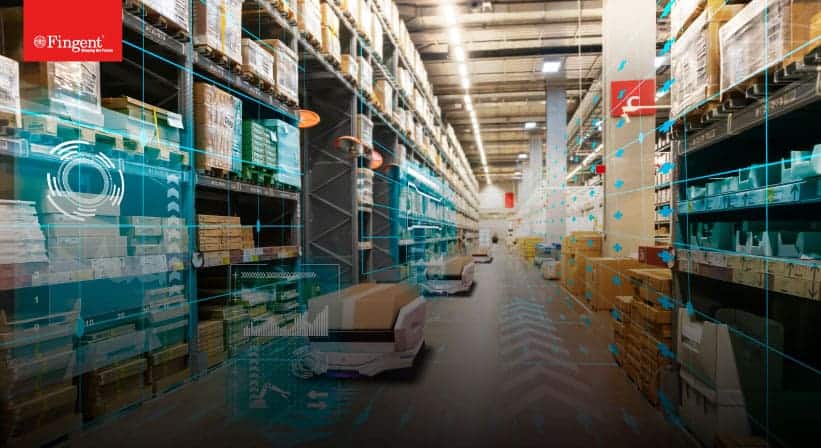
03 Jul 2024 Financial Services
AI in Business: Preparing Leaders For The Revolution
AI in Business is a present reality! It’s a building revolution that is all-encompassing and is redefining business operations. You have only two options. Either ride on the crest of……
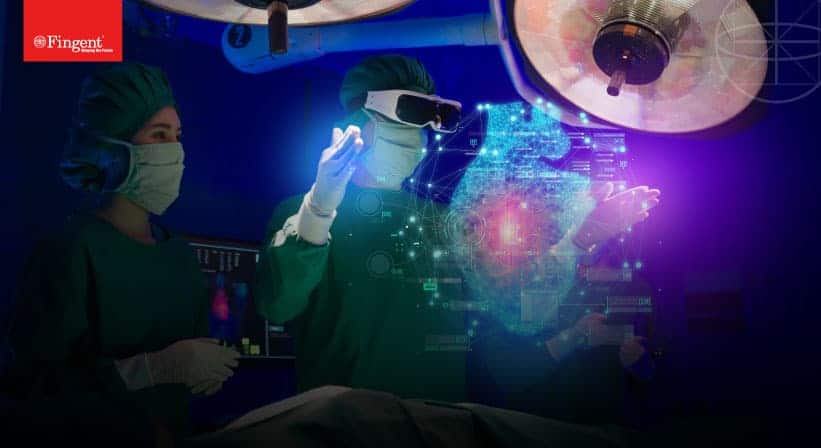
20 Jun 2024 Healthcare B2B
AI in Healthcare: Enhancing Patient Outcomes and Experience
Artificial Intelligence is a multi-talented assistant and has proven its worth in the healthcare industry. Healthcare organizations have found innumerable ways to use AI, from record maintenance to patient assistance.……
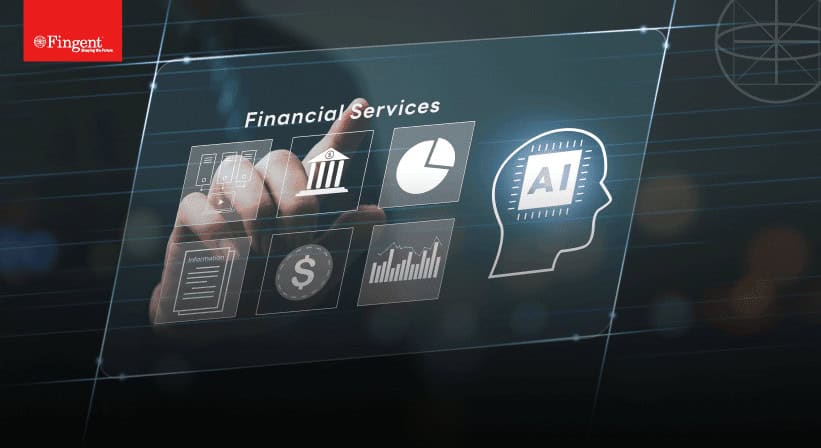
08 May 2024 Financial Services B2B
AI in Financial Services: Use Cases and Applications
Achieving perfection is no easy process. It is not impossible either. It takes a lot of effort and hard work but with the help of Artificial Intelligence, this process can……
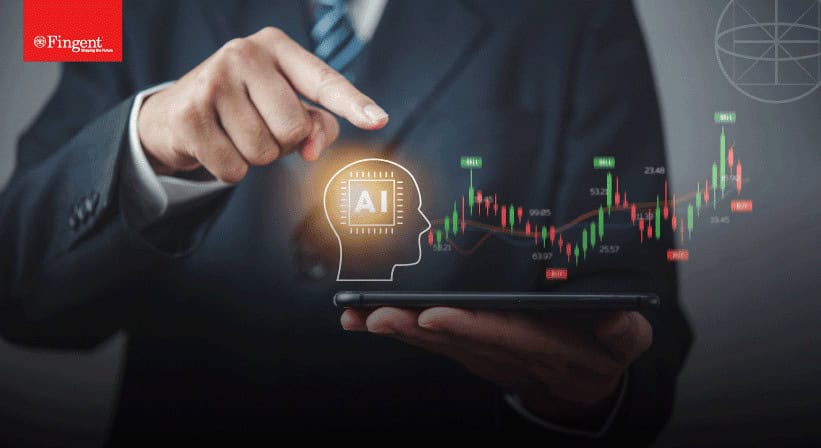
24 Apr 2024 B2B
A Leader’s Blueprint for AI Success
How Are Businesses Using AI? The verdict is crystal clear—leaders today must embrace AI solutions to stay ahead of the curve and survive in the rapidly evolving business landscape. AI……
Featured Blogs
Stay up to date on
what's new











